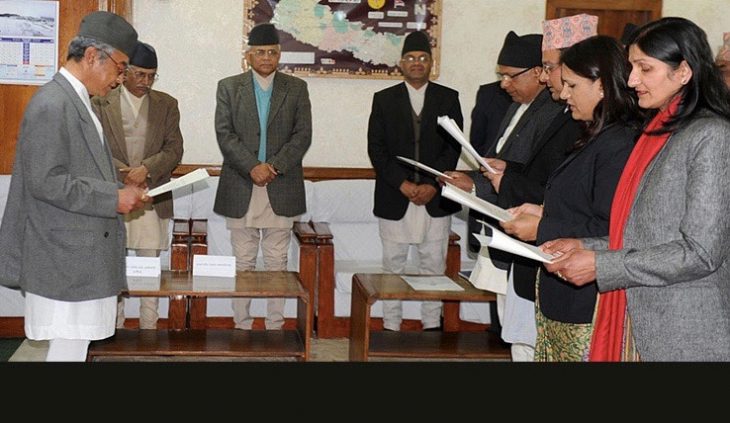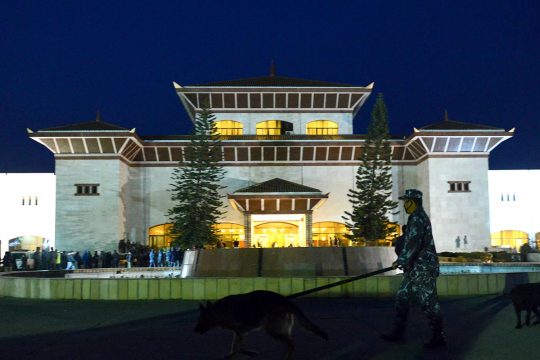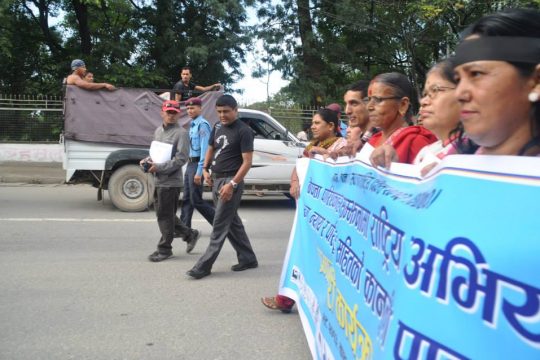The government of Nepal is preparing to register a new bill of controversial and highly contested transitional justice act in the parliament after 3 and half years of two transitional bodies formed in February 2015.
In a historic verdicts of Supreme Court (26 February 2015) on behalf of conflict victims legal petitions against flaws in the previous Act (the Enforced Disappearances Enquiry, Truth and Reconciliation Commission Act, 2014), government established a Truth and Reconciliation Commission (TRC) and the Disappeared Commission to investigate war era (1996-2006) crimes without listening to the victims’ demands and Supreme Court directives against the contested provisions of amnesty and forced reconciliation.
Accountability
The ministry of Law and Justice has made public a draft amendment on 21 June 2018 in Kathmandu and called for recommendations after pressures from National Human Rights Commission, victim groups and media. The chair of National Human Rights Commission Anupraj Sharma recently said: “Government is not willing to dealing with the past, not cooperating the human rights bodies to investigate and not addressing victims demands. So far government has implemented only 14 percent of our recommendations.” There have been questions of implementation of previous agreements made by the political parties and commitment to respecting rule of law and human rights that is a big question of political accountability in Nepal. However the minister of law and justice Sher Bahadur Tamang said the government will implement the recommendations made by human rights commission and the present draft will respect the supreme court order and international norms of transitional justice.
The new draft has proposed a special court provision and categorized conflict related crimes as “severe” and “others” crimes; severe crimes include enforced disappearances, extrajudicial killings, torture and rapes; says there will be no amnesty on severe crimes and removed the statute of limitation to register cases against perpetrators which has been a key demand of victims movement. The draft act proposed to withdrawing 350 conflict related cases registered under home ministry against the former rebellions who sit in the government now. The government recently has pardoned prisoners during the republican day message to the country that the state is adopting a politically led “conditional amnesty”, now reflecting through its new policy in transitional justice as “symbolic prosecution” to protect conflict related crimes both from political and security structures.
Victim justice
The draft act has proposed reparation as rights of the victims and establishes a community reparation, which is the achievement of victim advocacy for long that may open a door to address victims livelihood, memorialization and reconciliation processes in communities. Conflict Victim Common Platform has issued a press statement and said: Reconciliation is only possible with prior consent of victims and protection of the victims and witnesses through respecting their right to truth, justice and reparation.
The process of amendment of transitional justice act is a positive step forward to expand the premises of victim justice, but the act limited the space for victims that ignored their participation in drafting process. It envisions the symbolic prosecution to the perpetrators which is not acceptable in the “severe” crimes, so the act has been fully influenced by the perpetrators and come out as a compromised document in consultation with major political parties and the security institutions that failed to address structural violence and social justice concerns (violations of social and economic rights) in the new draft.





